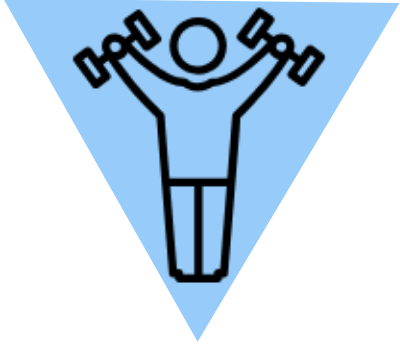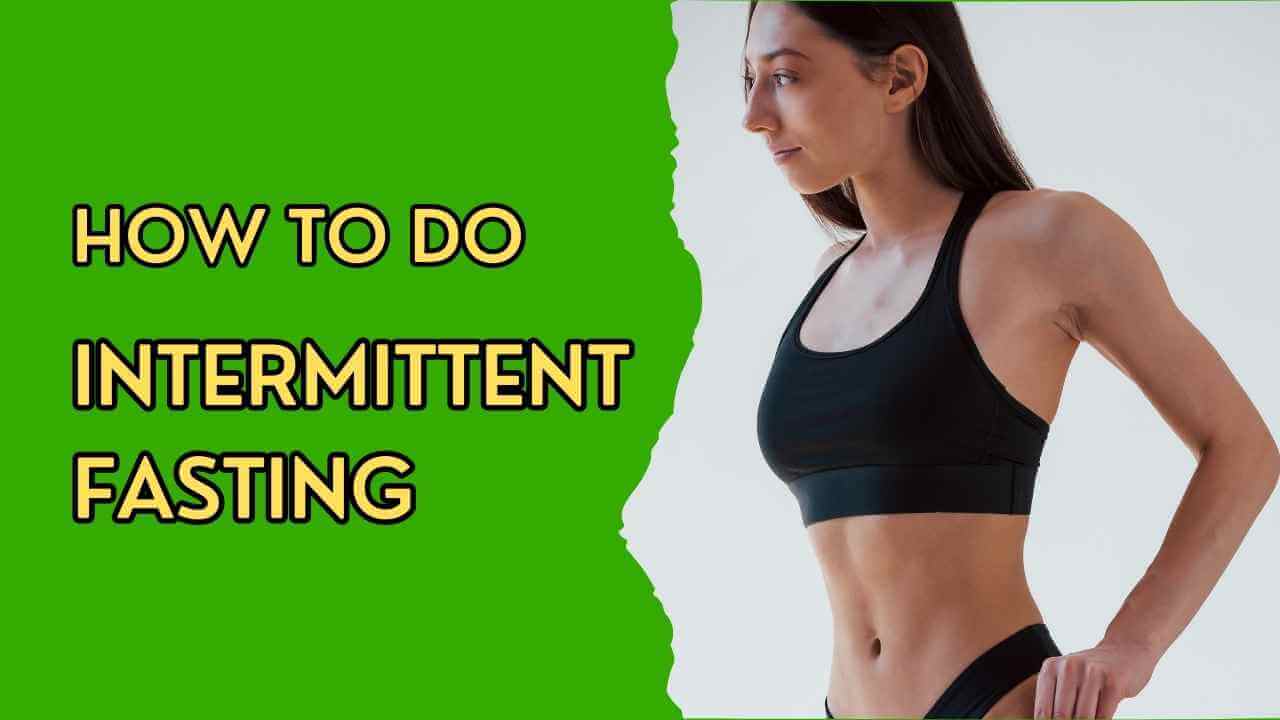Intermittent fasting is a great way to lose weight, increase energy and get healthier.
But it can be tough to start intermittent fasting if you don’t know how to do it properly.
Intermittent fasting is a healthy, sustainable way to lose weight and improve your overall health.
With proper preparation and support, you can stick to your plan and reap the benefits.
This quick guide will show you how to start intermittent fasting, including tips on what to eat and what not to eat, as well as how to stick to your plan.
How To Do Intermittent Fasting
What is intermittent fasting?
Intermittent fasting is a way of eating in which you alternate between times when you eat and times when you don’t.
It’s a great way to (1) lose weight, (2) make insulin work better, and (3) improve your health generally.
Intermittent fasting can be done in many different ways, but all of them involve not eating for a set amount of time each day or week.
Some people choose to fast for 12 to 16 hours every day, while others may fast for 24 hours once or twice a week.
Finding a way that works for you and sticking to it is the key to intermittent fasting.
The 16:8 method is the one most people use.
This means that you don’t eat for 16 hours and then eat for 8 hours.
If you skip breakfast and only eat lunch and dinner, you can do this.
It doesn’t mean you have to eat for eight hours straight.
Or, you can stop eating at 8 pm and start again at 12 pm the next day.
If those times don’t work for you, just move them an hour or two in one direction or the other.
For example, don’t eat from 7 p.m. to 11 a.m. the next day.
You might not like the idea of fasting every day, so you might want to ease into it.
This can be done in many different ways.
First of all, you could just decide not to eat after dinner.
Once this becomes a habit, you can either eat breakfast later or dinner earlier.
This might not work for you if you usually eat breakfast before you leave for work.
So another idea is to just fast on days that are easier for you.
You could also try the 5:2 diet, which is another popular way of intermittent fasting.
This means eating normally five days a week and limiting yourself to 500 calories on the other two.
Those two days shouldn’t follow each other.
One day during the week and one day on the weekend would be best.
Sunday and Wednesday, for example.
Why should you start intermittent fasting?
Intermittent fasting is good for your health in many ways, like helping you lose weight, make insulin work better, and lower inflammation.
By eating fewer calories altogether, intermittent fasting can help you lose weight.
When you fast, your body has no choice but to use fat stores as power.
This can help you lose weight, especially if you don’t eat more during your eating windows to make up for it.
Intermittent fasting can also make your body more sensitive to insulin.
Insulin is a hormone that makes it easier for your body to use sugar.
When your body has a lot of insulin, it stores more fat.
But when insulin levels are low, your body burns fat stores for energy.
So, if you do irregular fasting, you can help your body burn more fat by lowering insulin levels.
Inflammation can also be reduced by fasting on and off. Inflammation is a big risk factor for many diseases, such as heart disease, cancer, and Alzheimer’s.
Intermittent fasting can help lower inflammation by stopping the body from making inflammatory monocytes.
Monocytes are tiny proteins that help the defence system work.
So, intermittent fasting can help prevent illnesses like heart disease, cancer, and Alzheimer’s by lowering inflammation.
What to eat while intermittent fasting
During your eating times, you can eat whatever you want when you’re doing intermittent fasting.
There are no rules about what you can or can’t eat.
But it’s best to eat whole, healthy foods.
This includes fruits, veggies, lean meats, whole grains, and healthy fats.
This will help cut down on hunger and keep you from eating too much.
When you fast, it’s also a good idea to drink a lot of clean water.
If you eat for less time than normal, you will find that you eat less on your own.
The best thing to do is not eat more calories than normal.
Fasting won’t make a difference if you eat more calories than you burn.
What not to eat while intermittent fasting
You should stay away from sugary drinks, processed foods, and bad fats when you’re doing intermittent fasting.
These things can make you gain weight and make it hard to lose weight.
Sodas, juices, and sports drinks all have a lot of sugar. Some examples of processed foods are snack packs, baked goods, and fast food.
Fried foods, prepared meats, and full-fat dairy are all full of unhealthy fats.
What to eat or drink during fasting hours.
It can be hard to figure out what you can and can’t eat or drink when you’re fasting.
The simple truth is that you shouldn’t eat anything.
Even though that sounds hard, keep in mind that most of those hours will be spent sleeping. We hope for at least eight hours.
You can drink certain things while you are awake. Some people only drink water, while others may also have coffee or tea.
But black coffee and tea with no sugar should be served.
You can also drink tea made from fruit or herbs.
Why not change things up?
That way you won’t get bored.
Lastly, you can also drink soup that is clear.
Just boil some bones, strain the soup, and drink it.
You can use leftover chicken bones or buy beef bones from a butcher.
How to stick to your intermittent fasting plan
The best way to stick to your intermittent fasting plan is to make sure you’re prepared.
This means having healthy food options available and knowing what you’re going to eat ahead of time.
It can also help to tell your friends and family about your intermittent fasting plan.
This will help them understand why you’re not eating during certain times of the day and encourage them to support your efforts.
Finally, don’t be too hard on yourself if you slip up.
If you have a bad day or cheat on your plan, don’t give up.
Just start again the next day.
You now know how to do intermittent fasting, what it entails and how to start.
As with anything that is worth doing, it’s important to be patient; results from intermittent fasting may not be immediate.
But if you stick with it, you will see many health benefits in the long run.
References
1) Intermittent Fasting: Is the Wait Worth the Weight? https://www.ncbi.nlm.nih.gov/pmc/articles/PMC5959807/
2) Intermittent fasting: is there a role in the treatment of diabetes? A review of the literature and guide for primary care physicians https://www.ncbi.nlm.nih.gov/pmc/articles/PMC7856758/
3) Health effects of intermittent fasting: hormesis or harm? A systematic review https://academic.oup.com/ajcn/article/102/2/464/4564588?
4) Effects of intermittent fasting on body composition and clinical health markers in humans https://bit.ly/3ywf0NK
5) Mount Sinai Researchers Discover That Fasting Reduces Inflammation and Improves Chronic Inflammatory Diseases https://www.mountsinai.org/about/newsroom/2019/mount-sinai-researchers-discover-that-fasting-reduces-inflammation-and-improves-chronic-inflammatory-diseases
A quick note about the articles on this site: All posts and reviews are done as honestly as possible and I make no promises to the reader that they will lose weight, improve there health and well being or will cure any problems which the post talks about. That being said I have studied the topics on my website and have personally found them to be most helpful. Should you click a link on this site that takes you to a paid product this link will be an affiliate link and I will be paid a percentage of the sales price should you decide to purchase that product.

